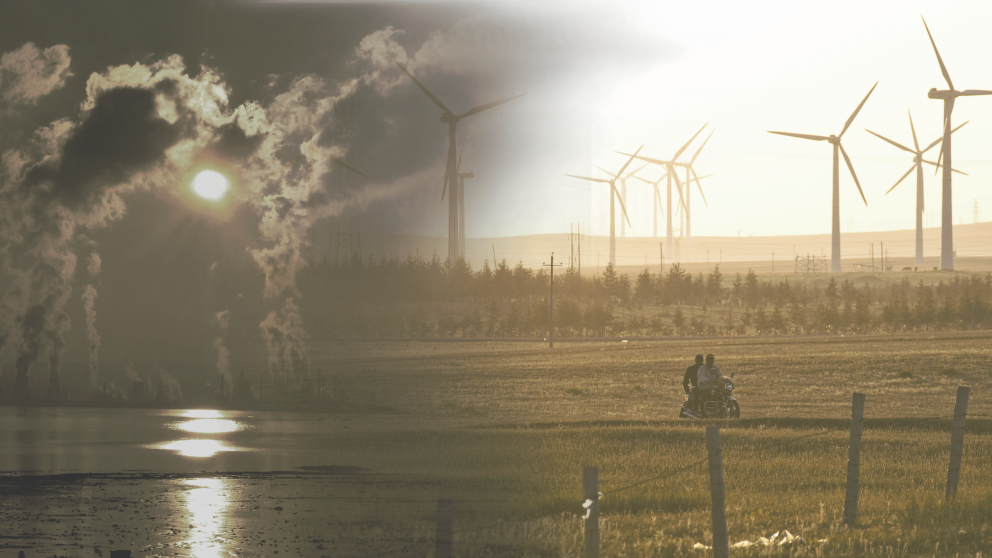Germany’s Climate Protection Act: Why is progress so faltering?
16.04.2019

Upcoming decisions on Germany’s coal phaseout and climate protection legislation need to inspire a more forward-looking industrial policy.
The next generation has already taken to the streets: The Mayas and the Karims, the Paulas and the Bens are all out there, striking for climate protection measures that are worthy of the name. We are witnessing the emergence of a new movement forged in pupils’ vociferous protests for tangible climate action. With her speech at the World Economic Forum in Davos, the young Swedish activist Greta Thunberg has once again put a face to this “Fridays for Future” movement. But another worldwide movement that goes largely unnoticed in Germany can connect with the younger generation to become a force to be reckoned with in the struggle for system change.
The global shift from fossil fuels to renewable, climate-friendly energy sources is well under way. And the interesting thing is that this energy transition is progressing without the need to cite compelling climate protection grounds.
In addition to the global market, China has discovered a growing domestic market for renewable energy technologies and electromobility, which is also allowing it to combat intolerably high levels of air pollution from the burning of fossil fuels. In India, up to one million additional jobs are due to be created by 2030 through the growth of solar energy alone – this is one of the findings of a study coordinated by the IASS Potsdam. Texas, of all places, has become a global energy change trailblazer due to the competitive cost advantage of the new generation of wind power installations. And in Germany too, 1,500 citizen-led energy cooperatives show how social and economic participation has become the main driver of the energy transition.
The global transformation of energy systems, the associated race to techical innovation, and the strategic upgrading of the required natural resources like lithium and certain rare earths could prompt no less than a seismic shift in the political and economic power structure. This is the conclusion of a recent report by the International Renewable Energy Agency (IRENA), which was part-financed by the German Government.
So a fundamental caesura may lie ahead for German industry, with potentially far-reaching consequences for existing trade relations as well as new stimuli to national economic development.
Germany has made a name for itself as a frontrunner in the energy transition. Its higher education system and engineering prowess are also universally respected. This would seem to qualify it to play in the premiere league of the new energy world. That is, if it weren’t for energy giants that have completely missed the innovation boat and thus brought themselves to the brink of ruin. And if it weren’t for a sluggish German car industry that has been indulged rather than challenged by the government and is now in danger of losing the race for the future of mobility to the US and China.
Climate protection and business innovation go hand in hand – to get this message across, the government has to send a clear signal to corporate leaders who seem utterly bewildered by global changes. Like the Renewable Energy Act of 2000 that sparked not only the German Energiewende, but also a global race to innovation in the area of wind and solar energy, this signal must be geared to achieving an exit from coal and a forward-looking industrial policy. It’s blatantly clear that the German car industry has to be part of the solution here.
The IPCC Special Report presented at the UN Climate Change Conference in December concludes that the basic thrust of the global energy transition is right, but the pace of change is too slow to prevent climate collapse. Against this background, the importance of political signals like the coal phaseout or the overdue Climate Protection Act cannot be overestimated.
Back to Maya and Karim on the streets of Bonn and Berlin. With their loud protests, the schoolchildren are voicing their right to a world where they can thrive as individuals and where their generation can live in peace, something that can only be achieved through comprehensive, cross-sectoral climate protection measures that are enshrined in law.
The good news: We’re on the right track in many key areas, but need to accelerate our progress significantly. By setting a clear deadline for the phaseout, the Coal Commission can send an important signal to the young generation in our schools and on our streets and encourage companies to invest in building the future rather than maintaining the past. The German Government now needs to anchor this in the Climate Protection Act planned for 2019.
